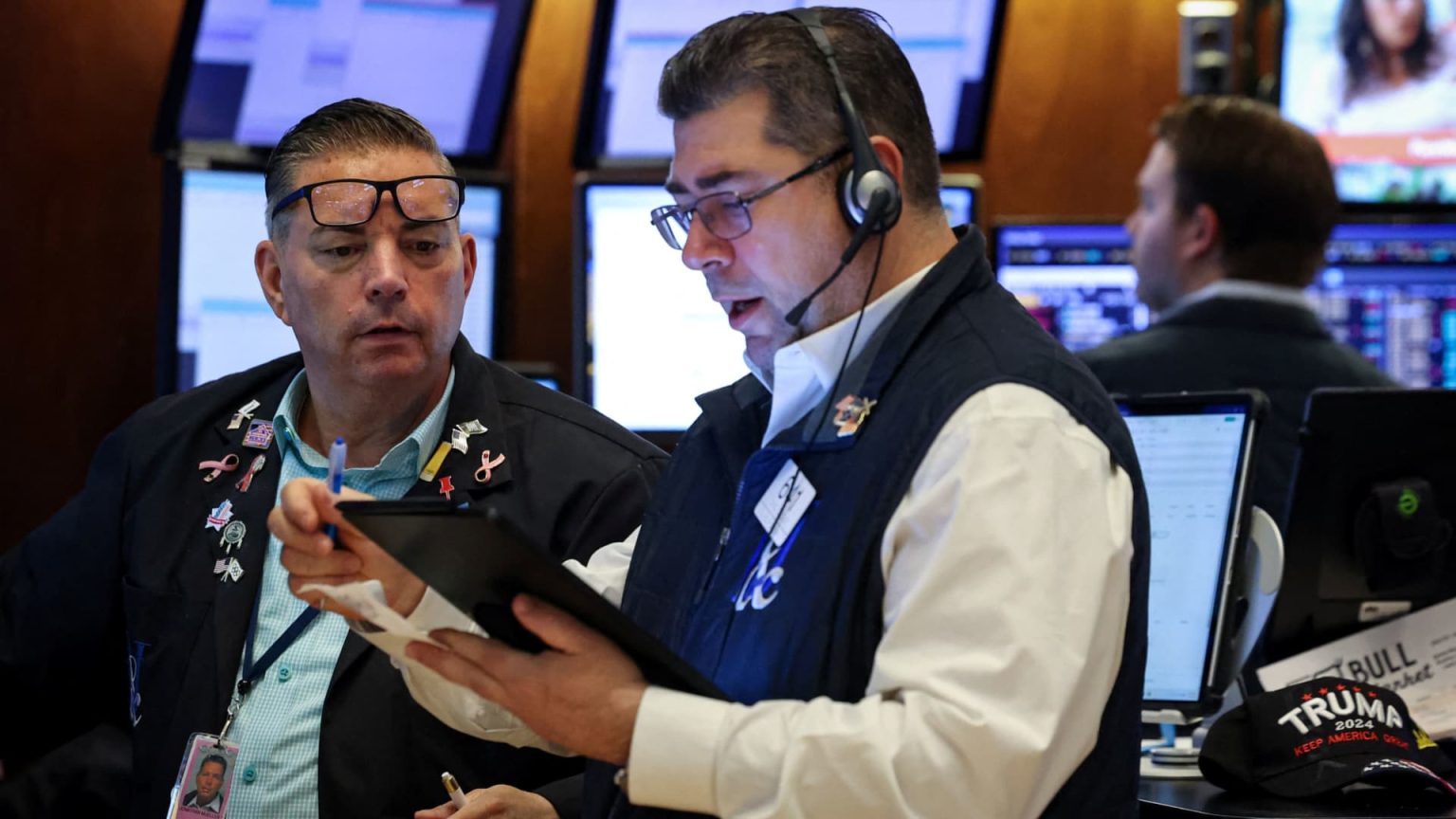As Wall Street braces for a week filled with uncertainty surrounding the Iran-Israel conflict, investors are closely watching economic indicators that could impact market stability. The S&P 500 remains on the brink of achieving an all-time high but is currently more than 2% shy of its February peak, amid concerns about trade, potential military actions, and Federal Reserve decisions. This delicate balance of geopolitical and economic factors will significantly influence market trends in the upcoming week.
| Article Subheadings |
|---|
| 1) Current Market Status and Investor Sentiment |
| 2) Economic Data and its Implications |
| 3) The Role of Consumer Confidence |
| 4) Upcoming Earnings Reports and Economic Indicators |
| 5) Analyst Predictions for Market Move |
Current Market Status and Investor Sentiment
As of the latest market analysis, investors are reacting cautiously amid escalating tensions related to the Iran-Israel conflict. Observations suggest a “wait-and-see” dynamic prevailing across the financial markets, with a notable pause as participant sentiment fluctuates according to evolving geopolitical developments. Notably, recent statements made by President Donald Trump regarding the U.S. response toward Israel’s military actions have influenced psychological factors within the trading environment. Investors have expressed relief over Trump’s decision to delay any immediate military involvement, which has allowed for a temporary bullish sentiment in the markets. According to Jay Woods, chief global strategist at Freedom Capital Markets, the situation reflects both optimism and skepticism: “The market is cautiously optimistic that negotiations could lead to a de-escalation of the conflict and, more importantly, no involvement by the U.S.”
Economic Data and its Implications
The unfolding situation in the Middle East is just one facet influencing economic predictions. Recent trends in economic data indicate that while some sectors are thriving, there are clear signs of weakening indicators that could impact the broader economy. The report from Evercore ISI’s Stan Shipley suggests that a range of recent statistics—including retail sales and housing starts—are showing “materially weaker” outcomes, raising concerns about the economic trajectory moving forward. On the other hand, there is optimistic input from analysts who emphasize the historic strength of sectors like industrials and technology. The Dow has seen significant year-to-date improvement, with technology stocks leading the resurgence. This mixed economic climate raises questions about future Federal Reserve interest rate decisions and potential interventions regarding tariff impacts on inflation.
The Role of Consumer Confidence
Consumer confidence remains a critical component in determining overall market stability as the U.S. economy faces inflationary pressures and external conflicts. The persistence of demand in consumer goods and services has provided a buffer against a potential recession. Analysts posited that consumer resilience is a contributing factor to their confidence in sustaining economic growth despite international uncertainties. Additionally, there are expectations that advancements in artificial intelligence could enhance productivity later in the year, providing further support to consumer spending. Woods states, “The sectors that have led us from this rally, some of the most beaten-down names were technology stocks, and technology continues to lead.”
Upcoming Earnings Reports and Economic Indicators
In the coming week, investors will gain further insights through various earnings reports and key economic indicators. Companies like FedEx and Nike are scheduled to release their earnings, which may serve as essential bellwethers for consumer sentiment. Economic indicators such as the PMI Composite preliminary, existing home sales, and the personal consumption expenditures price index, which is closely monitored by the Federal Reserve, are also set to be released. The PCE Deflator, in particular, will be scrutinized for its implications on inflationary trends, particularly in light of rising oil prices linked to the geopolitical situation between Iran and Israel.
Analyst Predictions for Market Move
Looking ahead, analysts anticipate a complex interplay of factors shaping the short-term direction of the stock market. While challenges abound, including inflation concerns and geopolitical tensions, some analysts express optimism about the resilience of the markets. For example, predictions suggest that the S&P 500 could eventually reach 6,500 or 6,600 by the end of the year. Analysts are particularly keeping a close watch on semiconductor stocks—specifically, major players such as Nvidia. The performance of such stocks may dictate a broader market movement and signal the underlying health of the tech sector, which has proven pivotal in driving the market’s recent recovery.
| No. | Key Points |
|---|---|
| 1 | Market analysts are focused on geopolitical developments affecting stock performance. |
| 2 | Economic indicators suggest weakening despite a recent rally in the stock market. |
| 3 | Consumer confidence plays a crucial role in stabilizing the economy amid uncertainties. |
| 4 | Upcoming earnings reports from key companies will provide insights into consumer sentiment and market stability. |
| 5 | Analysts remain cautiously optimistic about potential market growth despite challenges ahead. |
Summary
With the ongoing geopolitical tensions and fluctuating economic conditions, investors tread cautiously as they await further data to guide their decisions. The upcoming week will be crucial in determining whether the markets can break through current resistance levels while facing both domestic and international challenges. Continued observation of consumer behavior, along with earnings reports and key economic indicators, will shape investor strategies in the coming days.
Frequently Asked Questions
Question: What prompted the recent cautious sentiment on Wall Street?
The escalating conflict between Iran and Israel, along with concerns regarding the economic outlook and potential Federal Reserve decisions, has created a cautious atmosphere among investors.
Question: How do upcoming earnings reports impact market predictions?
Earnings reports offer insights into consumer spending and business health, helping to gauge market stability and future investor confidence.
Question: What economic indicators should investors focus on next week?
Investors should pay special attention to the personal consumption expenditures (PCE) price index, existing home sales, and PMI Composite preliminary reports, as they provide crucial insights into inflation and overall economic performance.


